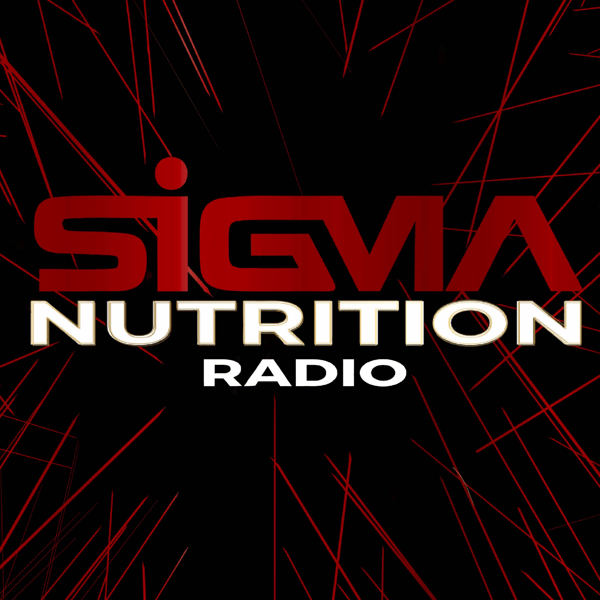#278: Jackson Peos, PhD – The ICECAP Trial, Intermittent Energy Restriction & the Science of Diet Breaks
Sigma Nutrition Radio
Danny Lennon
4.8 • 626 Ratings
🗓️ 16 April 2019
⏱️ 79 minutes
🧾️ Download transcript
Summary
Links:
About This Episode:
Jackson Peos, PhD was the lead researcher on the ICECAP trial (Intermittent versus Continuous Energy restriction Compared in an Athlete Population), looks at the effect of including a “diet break” week after every 3 weeks of dieting, compared to a continuous hypocaloric diet for the duration of the full dieting period.
In This Episode We Discuss:
- Theoretical reasons for including diet breaks and refeeds within dieting periods
- Distinguishing between intermittent fasting protocols and intermittent moderate energy restriction (MOD-IER)
- Lessons learned from the MATADOR trial
- What might differ between obese and athletic populations
- Design of Jackson’s “ICECAP trial”
- Determining the duration, frequency and magnitude of diet breaks, refeeds and energy restriction
- Current best practices for implementing these strategies
Transcript
Click on a timestamp to play from that location
| 0:00.0 | Now, if we contrast that to an intermittent diet, which we break up the dieting phase into |
| 0:12.3 | dieting blocks and sort of higher feeding blocks. |
| 0:14.9 | So this can be with a refeed or a diet rate. |
| 0:16.8 | So let's say with a model that I'm testing currently at the moment, which alternates three weeks of dieting with a one week diet break. |
| 0:25.3 | Now let's say that we also gave someone in an intermittent diet 12 weeks of dieting that they had to complete, but after every three weeks they got a one week diet break. |
| 0:34.4 | Even if they're feeling pretty crap by maybe the start of week three, |
| 0:37.9 | they might just be able to go, well, I've only got seven deficit days ahead of me. I can probably |
| 0:43.2 | hang on here because I know that I've got an increase in calories coming. Hello and welcome to another episode of Sigmund Nutrition Radio. |
| 1:05.8 | As always, I'm your host, Danny Lennon. |
| 1:08.4 | We're at episode 278 of the podcast today. And a quick announcement |
| 1:14.1 | before we get into today's discussion, for those of you who can make it to Dublin this July |
| 1:20.9 | 2019, I have two brand new seminars which are going to be taking place in mid to late July. |
| 1:29.1 | Details are out now and tickets are available and on sale. The first of those seminars takes place on the 20th of July in |
| 1:34.1 | Dublin. It's titled Nutrition for Health Enhancement. And we're going to be discussing all sorts of |
| 1:40.4 | different topics that relate for how nutrition plays a role specifically for health. |
| 1:46.0 | So going beyond some of the body composition stuff discussed in previous years, and this time really dialing into |
| 1:52.0 | when we're not discussing body composition, how nutrition decisions make a direct impact on health. |
| 1:59.0 | We're going to get into some of the literature around time |
| 2:01.5 | restricted feeding, circadian biology, non-diet approaches, how we should view things like nutrition |
| 2:10.2 | and its impact on blood lipids and blood glucose, nutrition and older adults, all that type of good |
| 2:16.9 | stuff, basically taking a breakdown of all |
| 2:20.3 | nutrition for health-related terms. That's on the 20th of July. And then on July 21st is going to be one |
... |
Please login to see the full transcript.
Disclaimer: The podcast and artwork embedded on this page are from Danny Lennon, and are the property of its owner and not affiliated with or endorsed by Tapesearch.
Generated transcripts are the property of Danny Lennon and are distributed freely under the Fair Use doctrine. Transcripts generated by Tapesearch are not guaranteed to be accurate.
Copyright © Tapesearch 2025.

